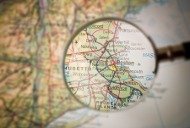The topic of war and peace is omnipresent in political and in public discussions. Here, well-founded empirical knowledge is a major precondition to initiating fruitful fact-based debates. This portal gives students, both at school and at university, as well as the interested public access to a broad spectrum of clear explanations regarding important data and facts on war and peace, which will provide them with the necessary information for self- reflection on options for political action.
The information portal war and peace offers this very access. In a number of thematic modules, it presents important basic information on a global scale as interactive maps that are accompanied by texts that provide more in-depth insight into the respective topics. Select data and information of the various modules can be combined in the maps so that content overlaps occur, offering even more information.
BICC (Bonn International Center for Conversion) deals with a wide range of global topics in the field of peace and conflict research, which range from the (de-)mobilisation of violent actors to arms exports and small arms control to the meaning of organised violence in global migration flows and the use of natural resources. Based on applied and transdisciplinary research, it offers policy advice and contributes to public debates. Our vision is a more peaceful world. To achieve this, BICC investigates new pathways for finding peace, supports demobilisation processes, conducts critical, problem-oriented, policy relevant research. It contributes to debates on organised violence and provides the public, the media and policy-makers with founded facts about and analyses of war and peace.
The German Federal Agency for Civic Education—the Bundeszentrale für politische Bildung or the ”bpb” as it is referred to in short—is a federal public authority providing citizenship education and information on political issues to all people in Germany. Being an institution entrusted with providing the kind of civic education specified in the German constitution, it bears the socio-political, educational and journalistic responsibility for the way in which it goes about its work. It works at the interface between state, politics, educational institutions, science and the media. The respective state agencies for civic education and independent organisations fostering civic education are constant co-operation partners. Beyond that, the bpb seeks co-operation with other educational institutions, non-government organisations, foundations and other actors in society.
In the course of 2010, BICC developed the web-based and interactive information portal war and peace for the online presence of the bpb and started with the first module(s) in German. Since 11 April 2011, the portal can be found as a joint project of BICC and bpb at sicherheitspolitik.bpb.de.
Co-operation between BICC and bpb aims at combining the specific mandate and the scope of the bpb with BICC’s technical expertise in research and analysis as well as the processing of relevant data, facts and connections relevant for the topic of war and peace.
In the course of the co-operative development of the information portal, BICC has developed eight topical modules since (in German):
- Wars and violent conflicts
- Peace and demobilisation
- Military capacities and means
- Natural resources and conflicts
- Conventional weapons
- Weapons of mass destruction
- Arms control.
The datasets used for the portal are common datasets in peace and conflict research and have been complemented by further global datasets of reliable, independent sources that comprise as many countries as possible. It is envisaged to only identify and use one central dataset for one respective theme. If, however, the gaps in the data are too large, other datasets will be added and combined—if adequate and scientifically sound as well as in terms of content. Whether one or more datasets have been used will be made visible in the portal’s description of the datasets and the sources. Should there be no additional datasets available or they do not deem adequate, we accept this and the resulting gaps and will point this out in the portal.
Due to lacking global datasets that also make available data and information for the sub-state level, the portal limits itself to a comparative presentation of country data.
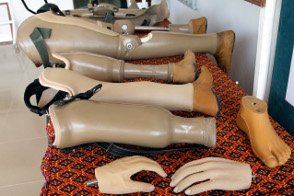
© picture-alliance/ ZB
Wars and violent conflicts
Where has there been war and violent conflict in 2016? Have child soldiers been used to fight, and if so, in which conflicts? Which country has had the highest number of homicides? Which countries impose the death penalty? What factors may cause a war?
More ...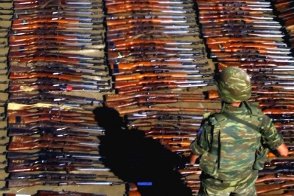
© picture-alliance / dpa
Peace and demobilisation
Which country has been peaceful the longest? What are peace missions and how many are there? Which country provides the most troops for peace missions? What multi-national deployments has Germany participated in? Where have disarmament, demobilisation and reintegration (DDR) measures taken place?
More ...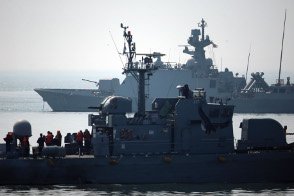
© picture alliance / Yonhap
Military capacities and means
Which country spends the most on arms? Which country has the largest army? Which countries does Germany trade military goods with, and in what quantities?
More ...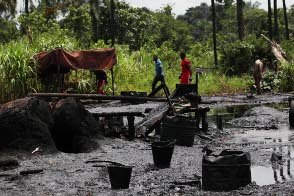
© picture alliance / AP Photo
Natural resources and conflicts
What are resource conflicts and where do they occur? Where do you find conflict resources? What are blood diamonds? What is the Kimberley Process and what other kinds of resource control regimes are there?
More ...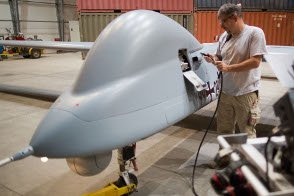
© picture-alliance/dpa
Conventional Weapons
Which country has how many battle tanks, combat aircraft and submarines? Where do most heavy weapons systems of a country come from? How many small arms and light weapons are there in a country? Which countries have not signed the two important conventions against anti-personnel landmines and cluster munitions?
More ...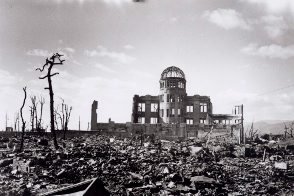
© picture-alliance/dpa
Weapons of mass destruction
How many nuclear weapons are there today? Which country has how many nuclear reactors? Where is uranium sourced from? In which country do most people live in the vicinity of a nuclear power plant? Which countries have got biological or chemical warfare agents?
More ...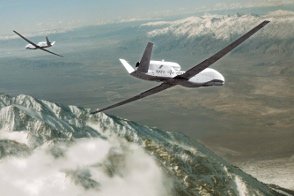
© picture-alliance/dpa
Arms control
Which countries have ratified which arms agreements? Have more conventional arms agreements been ratified than non-conventional? Which countries are free of nuclear weapons? Will the arms race move into space? And how is space now being used by competing states?
More ...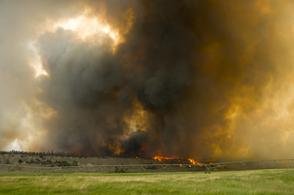
© picture-alliance/dpa
Environmental safety
What do we understand by environmental security? What countries are particularly affected by climate change? For what regions is there a forecast of an increase in temperature or rising sea levels? Which countries suffer from a scarcity of water? What does 'virtual water' mean?
More ...



